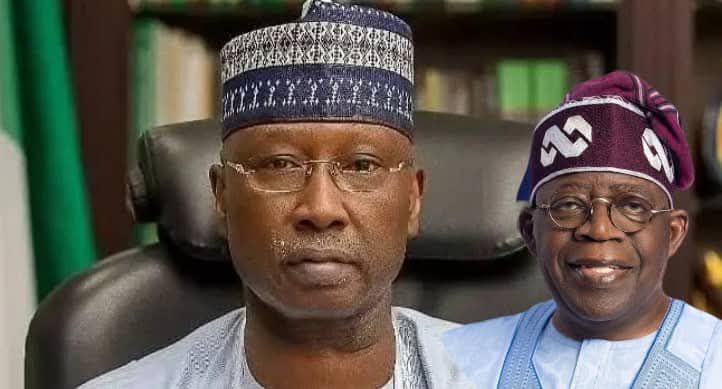President Bola Tinubu; his immediate successor Muhammadu Buhari; ex-Head of State Gen. Yakubu Gowon; and former Vice President Yemi Osibanjo converged on Abuja yesterday for the unveiling of a memoir titled ‘According to the President: Lessons From A Presidential Spokesman’s Experience’ written by ex-presidential spokesman, Garba Shehu.
Speaking at the event, exSecretary to the Government of the Federation (SGF), Boss Mustapha, said no individual in the All Progress sives Congress (APC), including Tinubu, should take the credit for Buhari’s victory in the 2015 presidential poll.
Mustapha, who served under Buhari, said the exmilitary ruler already had over 12 million existing votes and that the merger of the legacy parties brought in three million votes.
He said: “Unarguably, President Buhari’s public life was marked not just by official positions but by a strong connection with many Nigerians. “His reputation for integrity, discipline, and national commitment earned him lasting support, especially in the northern parts of the country and later, the South.
“This support was built on earned social trust rather than political expediency, and it gave his administration the room to pursue difficult reforms in areas like security and the economy with a degree of public backing that was unusual in Nigerian political history.
“No account of President Buhari’s tenure would be complete without acknowledging the extended periods he spent on medical leave. “These moments, while politically delicate, were also telling of his leadership philosophy and personality.
“Rather than disrupt governance, he allowed the constitutional order to function as intended, delegating authority to the Vice President and demonstrating a rare commitment to institutional stability.
“While some perceived a slowing of momentum, these periods revealed his preference for rule-based delegation and his confidence in the systems his administration had built.
It was leadership by structure. “When President Buhari assumed office in May 2015, Nigeria was facing severe macroeconomic and security challenges.
“Crude oil prices had collapsed, revenues had declined sharply, and public institutions struggled with credibility. “Boko Haram insurgency had escalated in the North East, testing federal unity.
“The administration responded by prioritising fiscal discipline, capital spending, and institutional reforms to restore stability and rebuild trust.”
Tinubu, represented by SGF George Akume, said: “Former President Buhari is a man whose leadership stood on the pillars of integrity, accountability, prudence as well as patriotism.
“Under his stewardship, Nigeria witnessed a decisive push to confront insecurity, a serious commitment to infrastructure renewal, a renewed focus on self-reliance and a clear effort to sanitize the public sector. “These themes resonate strongly in this book and must be appreciated in their full historic dimensions.
“From the restoration of fiscal discipline to the diversification of the economy, from the development of critical national infrastructure to the transformation of our rail and road networks.
“And from the expansion of social investment programmes to the repositioning of the agricultural sector, President Buhari’s era reflected an earnest attempt to reposition Nigeria for future resilience.”















